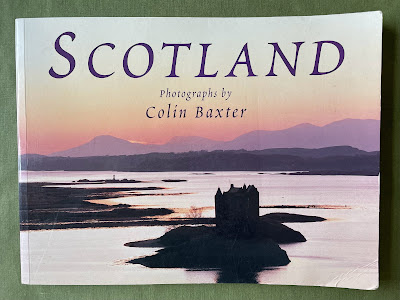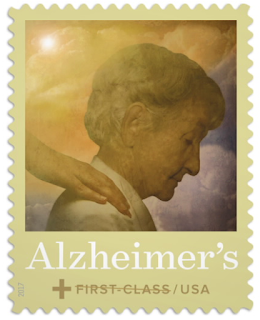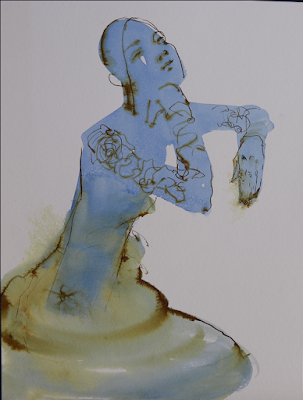So already, last Monday as I was walking to my car after visiting my mother on the Skilled Nursing Floor (SNF) of her senior living facility in Canton, I happened upon a perfectly heart-shaped gold leaf lying on the pavement.
It seemed so right to come upon it just then. Not only was I in the midst of preparing myself for the Jewish High Holy Days, but I had just had a wonderful conversation with my mother--not a predictable occurrence given that she is in the late stages of Alzheimer's.
This year--and I wouldn't have predicted this--visiting my mother at her nursing home has been central to my efforts at repentance, repair, and return--what Jews call teshuva--during the penitential month of Elul, which precedes the Jewish new year.
Over the years, I've used several different books to guide my holiday preparation. But this year, I decided to go again with Simon Jacobson's 60 Days: A Spiritual Guide to the High Holidays.
On
August 23, several days before Elul began, I had one of those visits with my mother during
which she mostly slept. So while she napped, I reread sections of 60 Days to remind myself of Jacobson's sense of the season's most important aspects. Though I'd read it before, the book's discussion of prayer felt completely new to me.
The following statements in particular engaged me:
- "Prayer is a conversation, a dialogue between your heart and your soul, between your heart and G-d. It is hard because it takes practice and work to develop the skills necessary to converse from the heart" (162).*
- "Of course, we all have emotions and feelings, but they are our natural ones, not something we have developed, cultivated or refined. . . . If study is exercise for the mind, prayer is exercise for the heart (162).*
- "This, then, is the challenge of prayer: to learn how to access your heart, to develop courage to be vulnerable and to express your feelings, and to do so before G-d with no shame or fear (163).*
Bullet by bullet, I had--and still have--the following questions and responses:
- When is the heart an intermediary between God and the soul, and when is it a barrier between them?
- How can we be sure that "developed, cultivated or refined" feelings are an evolution of natural feelings as opposed to a denial of them? (You can tell I had years of therapy!) How exactly does prayer work to change the heart for the better? Do"refined" feelings feel different than natural feelings? What aspects of the natural feelings have been burned away--as in the refiner's fire?
- Despite these questions, the tripartite challenge of prayer seems right to me--and for me.
As a result of reading on the nursing floor deck** that day, I resolved to recite daily two different prayers, one traditional and one non-traditional.*** That night, I acknowledged in my journal the first teshuva-related benefit of visiting my mother: "I never expected that visiting my mother would give me such an important [reading] hour today . . . .."
If
it's one thing I've learned in the past few years, it's that
Alzheimer's looks very different on different days. Yes, my mother
always knows who I am. Usually during my visits, she combines being asleep and being awake.
But,
as the previous paragraphs attest, some days, she sleeps for
practically my whole visit.
Other days, she not only stays awake, but
greets others, responds to questions, reads words, looks at photographs,
identifies flowers, names birds that light on trees. The other day, she was very interested in looking at pictures of Balmoral Castle because of Queen Elizabeth's passing.
Yet other days--like last Wednesday--she stays awake, but she's agitated and unsettled. These days when she's most obviously in the clutches of this disease are the most difficult and heartbreaking. When I ask if she's having a hard day, she says yes; when I ask if she has a lot on her mind, she says yes; when I ask her what's on her mind, she says she doesn't know. All I can do is hope that my being there makes her day a little bit better.
But whether she's having a good day or a bad day, she's perceptive emotionally: one day several weeks ago when I told
her that I preferred to hug her when she and I were apart from her
fellow residents since I didn't know which of them didn't have
visitors to hug them, she nodded vigorously, and her facial expression
reflected her compassion for those who seldom had visitors.
In general, teshuva
requires doing, reflecting*****, and being still; attentiveness, awareness, and responsiveness are central to it. So visiting my mother generally permits me to do teshuva, or to be in a teshuva state of mind. Though sometimes I sit there wondering what it's like to be her, what she thinks, feels, wants, and how she knows that, more often, I just be
there attentively and lovingly. Most of the time, it's a peaceful kind
of being together, I think for the both of us.
One of my emotional truths is that I didn't always have an easy, positive relationship with my mother.**** Which brings me to that wonderful conversation with my mother that I mentioned at the start of this post.
 |
| My Mother Around 1950 |
"Really?" she said, skeptically. [Note: whether I'm talking to her on the phone or sitting with her, I always tell my mother I love her. But periodically, she's skeptical.]
"Yeah," I said. "Really. I know that there were a lot of years--like when I was in my twenties and thirties--when we didn't get along very well. I think we understand each other better now than we did back then."
She looked at me and nodded.
"Laurie [my younger sister] once told me that at first she was surprised to hear me say that I loved you," I continued. "'You always seemed so mad at Mum,' she said. But I explained to her that over the years, you and I did much better with each other."
"Yes," my mother said. "Now we have a very nice understanding." And then we smiled and hugged.
My mother and I mended any fences that needed mending a long time ago, so our conversation was not desperately needed. But it was still great to hear her affirmation of the already known and achieved. It made me think about the last lines of Fiddler on the Roof's "Do You Love Me?" with one modificiation: "It doesn't change a thing but even so/ After thirty-five years, it's nice to know."
 |
| With my dad in 2019; he died of COVID19 in 2020. |
That's why that gold leaf on the pavement seemed so perfectly symbolic to me.
If I had to say what's refined my heart, specifically in regards to my mother, I would say that it's been writing more than praying. But Julia Cameron would say that often they're the same thing. In fact, her 2004 interview in Publishers Weekly was entitled "Writing as Prayer."*******
As I reread what I've written above, I realize that this blog post is yet another example of writing as prayer. I sit here not knowing whether this is the last Elul that my mother and I will have together. So I write this hoping, praying that, whenever the moment comes for her to pass into eternal life, she will glide across the threshold gently, easily, and peacefully. In Ehyeh: A Kabbalah for Tomorrow, Arthur Green says, "The One who loves us is there in all that will happen" (5)******** This comforts me.
The Jewish new year begins one week from tonight. May all of us be inscribed for a good new year. May our hearts heal if they're broken, and may they open and stay open. Shana tova.
* Jacobson, S. (2008). 60 days: A spiritual guide to the high holidays. New York: Kiyum Press.
** Screen shot from the video virtual tour of the Orchard Cove Skilled Nursing Services Community: https://www.hebrewseniorlife.org/orchard-cove/health-care-services/long-term-care-canton
***I've kept up this routine, which I genuinely like, and I do feel these two prayers have become companions in some way.
**** We clashed a lot when I was a teen and when I was in my late twenties and early thirties--for reasons that don't matter at this point. We also clashed a lot when she was in the early stages of Alzheimer's, and she still believed that she could be fully responsible for taking her medications at the right times. In many ways, early Alzheimer's is harder on families than late Alzheimer's, I believe.
***** Drawing by Scott Ketcham: https://www.scottketcham.com/image/668427944162639872
*(6) I followed Cameron's 12-week creativity course as laid out in The Artist's Way very soon after I retired in 2014.
*(7) Nelson, M.Z. (2004). Writing as prayer. Publishers Weekly. Retrieved September 17, 2022, from https://www.publishersweekly.com/pw/by-topic/authors/interviews/article/20075-writing-as-prayer.html
*(8) Green, A. (2003). Ehyeh: A kabbalah for tomorrow. Tennessee: Jewish Lights Publishing.







